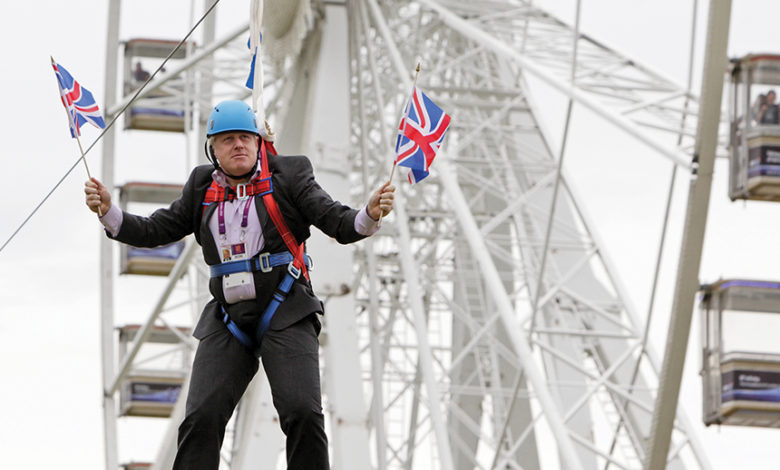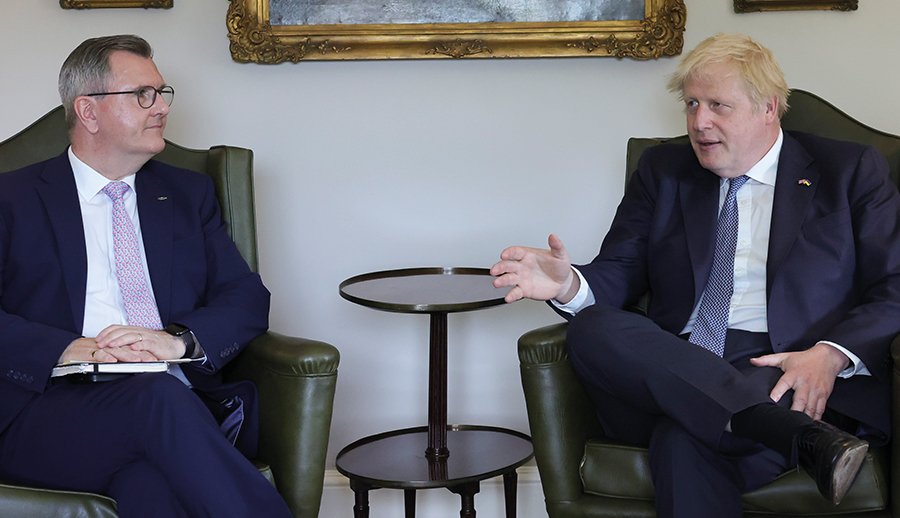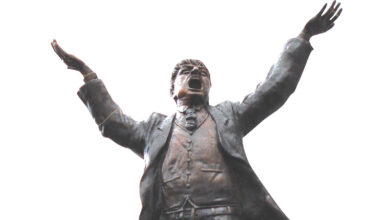After the fall

Boris Johnson’s premiership came to a stuttering end with many choosing to focus on his eccentric personality and a culture of lies embedded in Downing Street, however, the true extent of his legacy is much longer lasting, writes David Whelan.
Johnson came to power on the back of a pledge that he would ‘get Brexit done’. He benefited from a wariness amongst MPs of Theresa May’s successive attempts to get a deal through Parliament and in the end secured a deal which in hindsight, he had no intention of honouring in full.
The history books will show that Johnson was the Prime Minister that signed the Trade and Co-operation agreement, but almost two years on, the UK’s relationship with the EU is at an all-time low. If efforts, started under Johnson, to domestically alter the trading arrangements agreed by both sides come to fruition, European sanctions – some of which have already begun, including denied access to the multi-billion Horizon Europe programme – and a faltering relationship could stretch for decades to come.
It is not just with the European Commission where historical bonds have been stretched; any country trading with the UK could be forgiven for lacking trust in any agreement. Meanwhile, the Irish Government’s relationship with Westminster is highly strained and in Northern Ireland, unionism’s early hopes that Johnson would fight their corner have not materialised.
That the DUP have chosen to withdraw from Stormont in an attempt to hold the UK Government to ransom over the Northern Ireland Protocol is one side of an argument that under Johnson’s leadership the union has never been weaker, on the other side the push for Scottish independence has resurged, with proposals on the table for a second referendum in 2023.
Johnson was eventually forced out after it was revealed that he lied about knowing of previous allegations against his Chief Whip. In total, more than 50 members of Johnson’s government resigned in protest of his leadership, including leading members of his cabinet. However, the scandal was the straw that broke the camel’s back rather than the source of all discontent, alongside ‘partygate’, Tory MPs could see that failure to deliver the Brexit Johnson had promised will damage the progress previously made in the ‘red wall’ constituencies in working class parts of England.
While many of these issues have dominated the news agenda in recent months, if not years, they have served to mask an undercurrent of a lurch to the right by the Government and a centralisation of some key powers, enshrined in legislation.
For example, while the media focused on the Supreme Court’s ruling that the Queen’s suspension of Parliament in 2019, on the back of persuasion by Johnson, was unlawful, less attention was given to the fact that Johnson and his peers intended to ‘rebalance’ the relationship between the courts and parliament.

The Judicial Review and Courts Act 2022 limited the use of judicial review as an appeal route from tribunals amongst other things and it has now been suggested that the Government intends to go further in the future and make it more difficult for those who have concerns about decisions made by public bodies to bring successful legal challenges against the Government.
The Act plays into another piece of legislation, the Dissolution and Calling of Parliament Act. With both in place, Parliament no longer has a veto over a Prime Minister’s calling of an election and at the same time, courts will be prevented from questioning the dissolution of parliament. Johnson had hoped to wield the power in calling an election in or before 2024 at a time of his choosing and while it is not a luxury he will enjoy, his successors may benefit.
Another example of the centralisation of power under Johnson is the Elections Act 2002, which requires mandatory voter ID for any future elections. Around 3.5 million people in the UK do not have a passport or driving licence and it is widely recognised that the largest impact will be on the poor and the young – not the Tory voter base. Additionally, the Electoral Commission is to be provided with a new strategy and policy statement by the Cabinet Office, with many questioning the impact on its independence.
The House of Lords, before some minor amendments were made, described The Police, Crime, Sentencing and Courts Act 2022 as “draconian and anti-democratic”. The Act essentially enhanced police powers to control protests – even straying into levels of noise – and apply even to individuals.
Meanwhile, the Nationality and Borders Act made sweeping changes to the UK asylum system, introducing a two-tier asylum system, and increasing the standard of proof for establishing someone is a refugee.
In Northern Ireland, political opposition could not prevent Johnson’s Government pushing through the controversial Northern Ireland Troubles (Legacy and Reconciliation) Bill through the House of Commons. With no support from any of Northern Ireland’s MPs the bill is expected to face stiff opposition in the House of Lords but the Conservative party’s majority in the Commons is expected to be enough to ensure the bill, which offers a conditional amnesty to those accused of killings and other Troubles-related crimes, gets enacted.
The legislation is not exhaustive of the centralisation of power, take, for example, the decision to deliver Government’s ‘levelling up’ funds centrally, even to the devolved nations.
The Prime Minister’s buccaneering style and unique bravado will come forefront to the mind of most when they think about his premiership and undoubtedly Liz Truss MP will operate in a Johnson-shaped shadow. His legacy however stretches well beyond his public persona.





